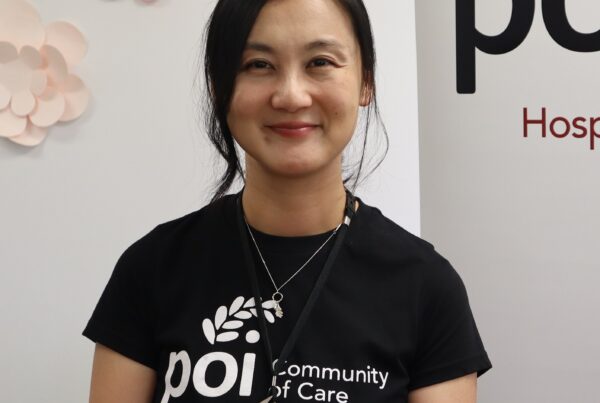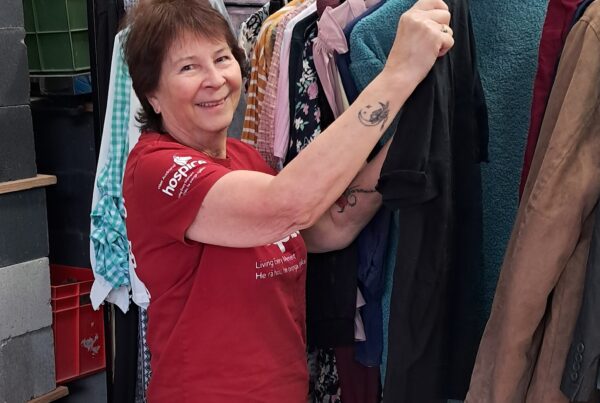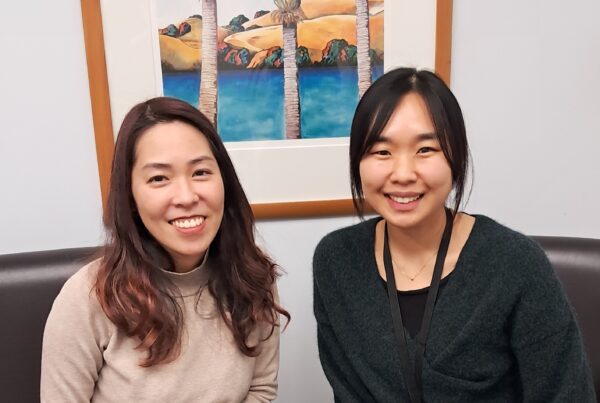Jemima has completed a three-month placement at Hospice West Auckland as part of her Bachelor of Social Work degree – an experience she describes as ‘amazing’. Social Workers play a vital role in palliative care by supporting patients and families with practical solutions, advance care planning, advocacy, and collaborating with interdisciplinary teams.
“I’ve chosen to study in my 50s, and I think for the first year of the Social Work degree it’s all new and you tend to keep an open mind,” says Jemima. “But in my family history there’s a lot of focus on birth – I had fathers and stepfathers who were obstetricians. Over time and experience, I realized that the impact of someone’s death and the dying process was really fascinating for me too. And that it can be dignified and peaceful, or it can be the opposite. I started to feel quite passionate around that, and recognised that I want to support people going through the dying process to have the best death they can have: a dignified, peaceful and graceful process. And people need support, it requires a whole village.”
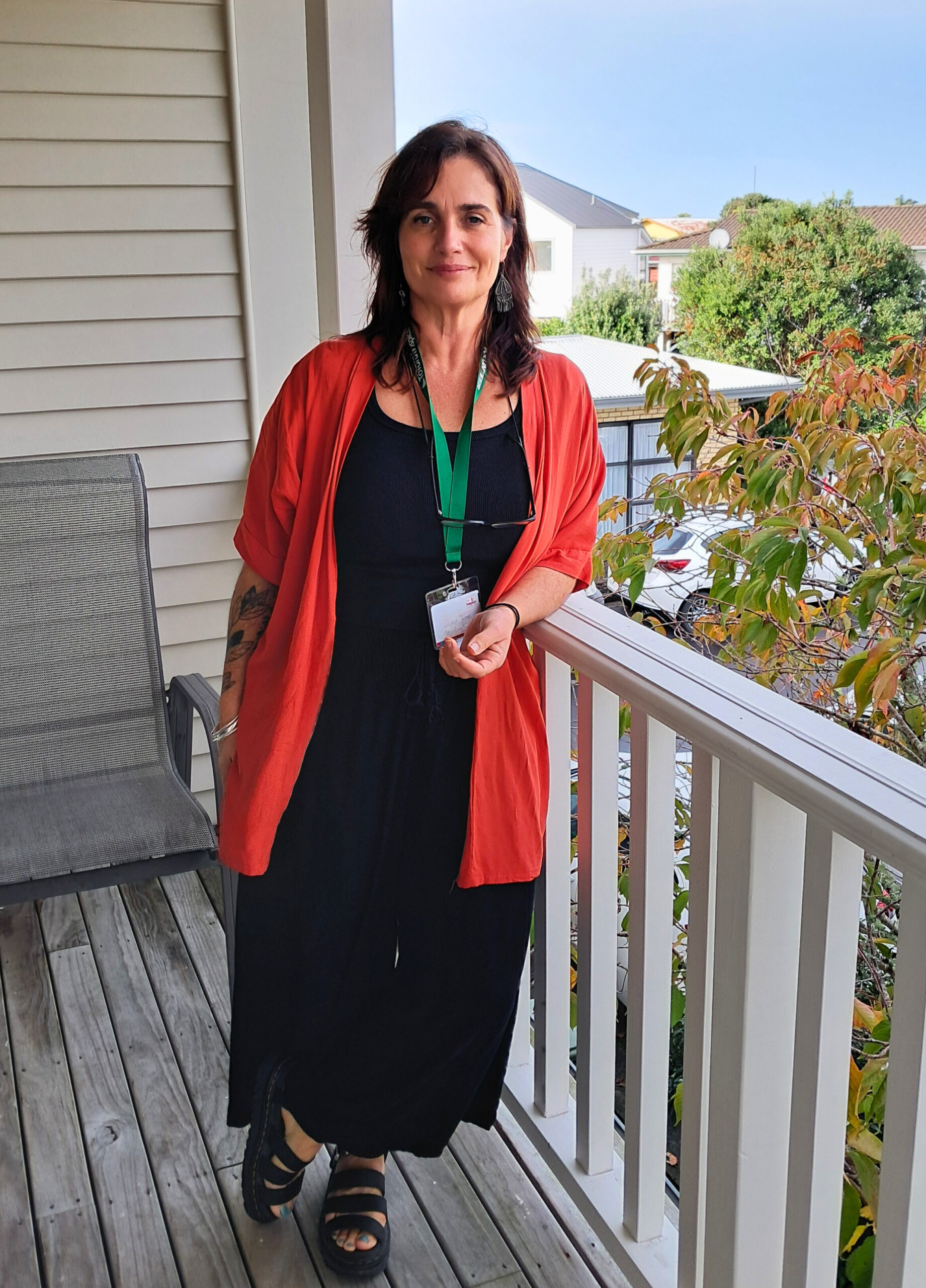
The diversity within social work is a big appeal for Jemima, and she’s grateful for how broad the field is. “The variety of scope you have with the different fields you can go into is pretty amazing.” She’s been surprised to find that her studies have been quite a journey of self-reflection and personal growth. “We’re required to think quite deeply and do a lot of self-reflection about ourselves,” she explains. “We’re really encouraged to think about what resonates with us and what we’re passionate about.”
Jemima has found Hospice to be an ‘incredibly caring environment’ and has been impressed by how that care extends not just to patients and families, but to staff, volunteers and students as well. “It’s a very warm, welcoming place to be,” she says. “I’ve been given so much opportunity to learn from my experiences. As a student you tend to be very directed, but here I’ve had space to use my ingenuity.” Her time at Hospice has also strengthened her technical skills, learning to navigate the tools and systems that help the team work efficiently and collaboratively.
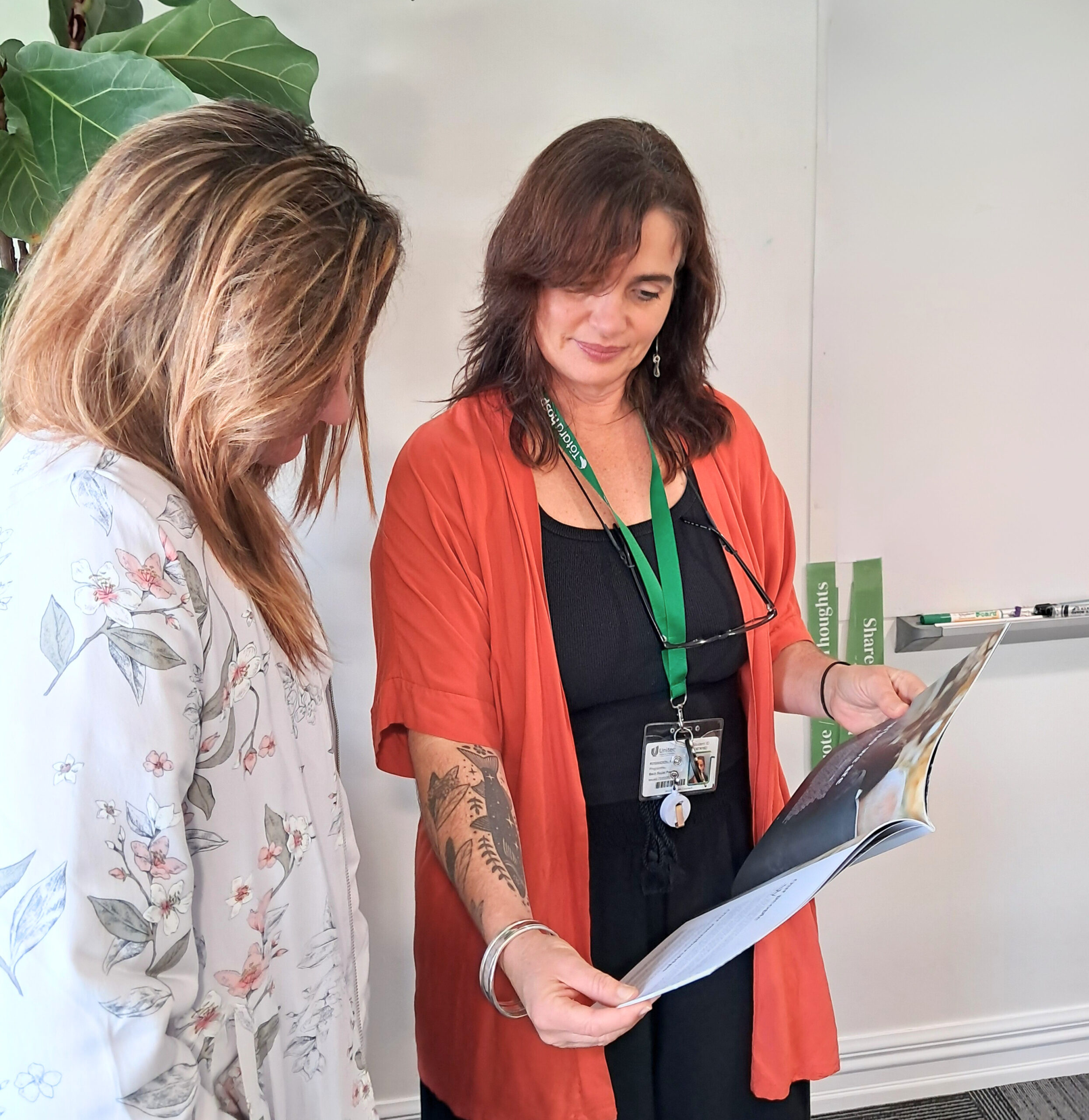
Jemima has been especially inspired by the interdisciplinary model of care at Hospice West Auckland. “It’s been fascinating learning about all the different layers of how Hospice functions,” she explains. “It’s such an interdisciplinary team and I’ve learnt so much listening to the doctors, nurses, pharmacists, occupational therapist and social care team about what all the different disciplines bring. Everyone’s looking at the same person through a different lens, and every discipline in that team has equal standing, equal weight. It’s amazing, they’re all equally valued. That brings a level of confidence.”
In addition to shadowing members of the clinical and social care teams, Jemima has participated in networking events with the Poi (Palliative Outcomes Initiative) team. Poi promotes a public health approach to palliative care, engaging with families, clinicians and communities to better support those living with chronic illnesses. “This is actually a huge area of the organisation: networking, community events and building relationships with other organisations. That inter-organisational relationship is essential, because it’s not just one organisation taking care of a family in its entirety. Learning how the Poi team foster and grow those relationships has been quite eye-opening.” She has also enjoyed learning about the importance of fundraising and the network of Op Shop retail stores – aspects she hadn’t considered as being crucial to enabling Hospice to provide its holistic services for free to the community.
Reflecting on her placement, it’s the small but meaningful moments that particularly stand out. “If I stop and think, it’s about all the little micro moments that I’ve had with people, moments where I’ve been able to comfort a patient, or make them laugh, or those times where you know you’ve shared something a little bit special or you’ve helped someone just a bit and solved a little problem they didn’t have the resources to sort out.”
Jemima also acknowledges that emotional intensity of palliative care. “The emotions can be heavy, but they can also be the complete opposite and be incredibly light and beautiful, especially if someone has a really peaceful death,” she says.
While Jemima has found her placement to be a positive and enriching experience, she recognises that it may not be the right fit for everyone. “It depends so much on the individual,” she explains. “I personally feel that death is such a huge part of life and affects us all, and there’s a need for more awareness and education around palliative care for all students. I’ll definitely be encouraging my fellow students to explore what Hospice offers.”






